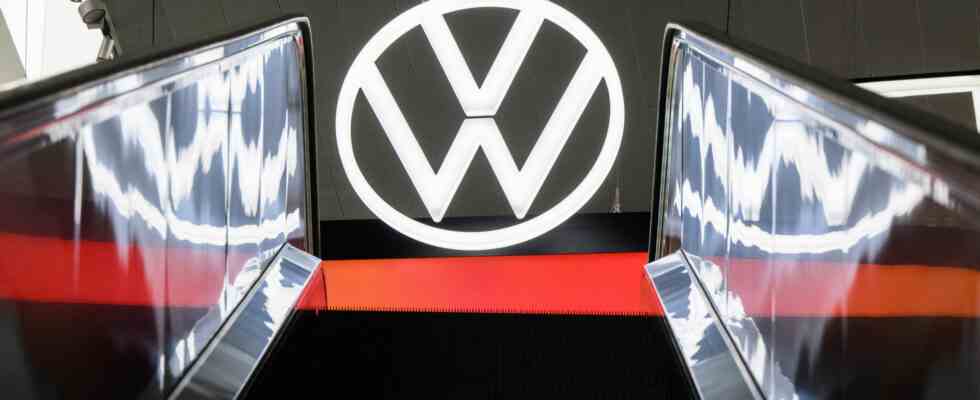Status: 01/12/2023 12:47 p.m
The Volkswagen Group sold seven percent fewer vehicles in 2022. At the same time, however, sales of electric models improved significantly. Meanwhile, subsidiary Porsche is said to be negotiating with Google.
Due to the delivery problems with car electronics and the corresponding production problems, the Volkswagen Group sold significantly fewer vehicles overall in the past year. Worldwide deliveries in 2022 fell by seven percent compared to the previous year to almost 8.26 million units, as VW announced today. After that, the only growth region was Asia-Pacific, if you exclude the most important market there, China.
Sales picked up again strongly in the final quarter
In the course of the year, however, business picked up again noticeably. At the end of September, deliveries were still 13 percent below the previous year. In December alone, however, there was a global sales increase of 18.1 percent in the sales statistics – with growth of almost 23 percent in China or almost 18 percent in Western Europe.
In the entire final quarter, deliveries worldwide rose by 14.3 percent to a good 2.2 million vehicles, as the Wolfsburg-based company further reported. The growth was particularly strong compared to the previous Corona year at 27.8 percent in Western Europe. In China, the automaker improved by nine percent from September to the end of the year and in North America by three percent.
The lack of chips and the economic consequences of the corona restrictions in China had recently eased somewhat. This also stabilized the supply chains. In November, VW temporarily restricted production in parts of the People’s Republic.
E models in high demand
If one only looks at vehicles with electric drives, the picture looks more positive for the year as a whole: Here, the brands of the world’s second-largest car company managed to increase sales by a good 26 percent to over 572,000 vehicles compared to the previous year. The group explained that 6.9 percent of all vehicles delivered were pure electric vehicles – 1.8 percentage points more than in 2021.
For 2023, the Volkswagen Group is aiming for an e-share of eleven percent. In addition, it is sticking to the target of 20 percent for 2025. By then, around 460 million euros are to be invested in the conversion of the main plant in Wolfsburg, as VW recently announced. The location is currently being prepared for an overflow of the ID.3 models previously produced in Zwickau. In the future, the main plant is to be completely converted to electric cars.
Porsche increases sales slightly
The sports car manufacturer Porsche, majority owned by the VW Group, has suffered a setback in the transformation process. While other manufacturers such as Mercedes and BMW were able to more than double their sales in the electrical sector, the Stuttgart-based company has clearly fallen behind. For the Taycan series – so far Porsche’s only electric car – sales collapsed by 16 percent, as the company announced this morning. The reason is bottlenecks in the supply chains and limited availability of parts.
Overall, however, the DAX newcomer sold slightly more cars in 2022 than in the previous year, despite falling sales figures in China. Deliveries by the Volkswagen subsidiary increased by three percent to 309,884. In the home market of Germany, it went up by three percent. In the USA – the growth driver in the previous year – Porsche was treading water in terms of sales. The rest of Europe, on the other hand, grew by seven percent and the “overseas and growth markets” sales region – which includes Latin America, Africa, Australia, Japan and Korea – with a plus of 13 percent.
Cooperation with Google is in the air
Meanwhile, according to media reports, Porsche is considering a more in-depth cooperation with the US technology group Google. “Porsche is thinking about going its own way with the infotainment system and completely integrating Google,” said a person familiar with the consultation from the Reuters news agency. Volkswagen boss Oliver Blume, who also runs Porsche, recently met with leading Google managers. The “Manager Magazin” had previously reported that Porsche was thinking about allowing Google apps into the cockpits of its vehicles – above all the Google Maps navigation system.

